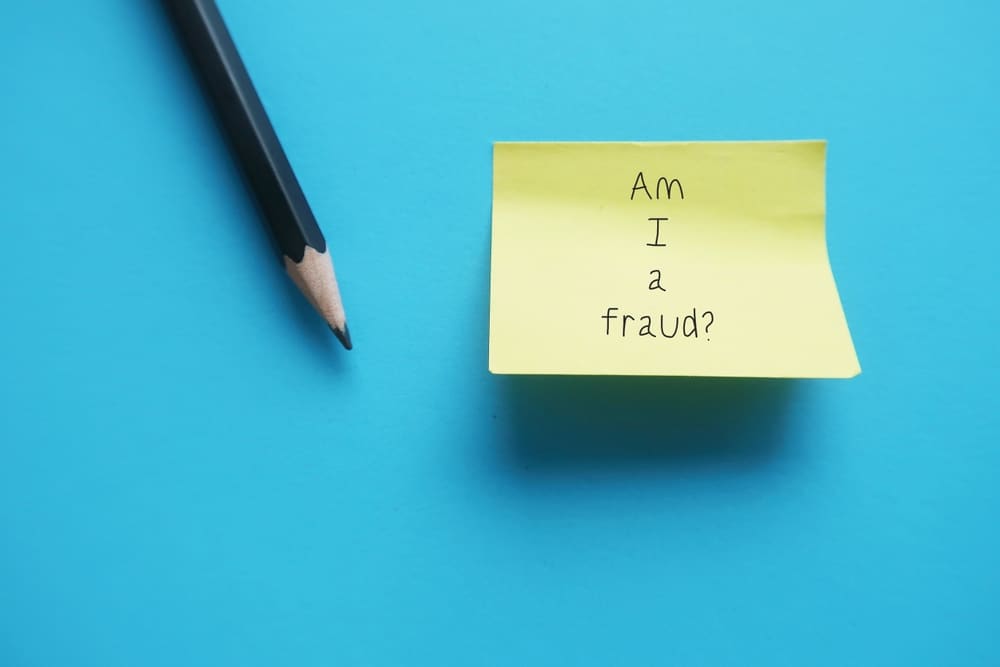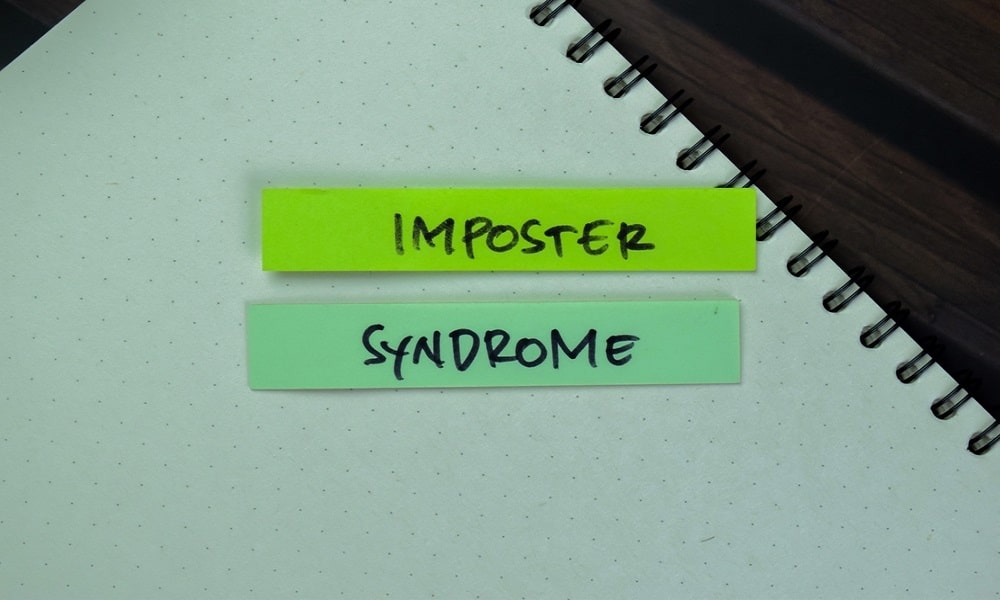Imposter syndrome is the feeling of self-doubt and inadequacy. It can affect people in all aspects of their lives, but in the workplace, it manifests itself in feeling like a fraud, like you’re in someone else’s shoes and are unfit for your role.
Anyone can suffer from this. However, it has been found to be a particularly common issue for women.
In this article, the UK’s top company formation agent, 1st Formations, unpacks the term ‘imposter syndrome’ and explores how female entrepreneurs can tackle it to find the confidence and empowerment they deserve.
What is imposter syndrome?
We mentioned that imposter syndrome is feeling like a fraud. Common symptoms include:
- Being highly averse to taking risks and over-think the possibility of something going wrong
- Considering yourself inadequate to handle risks and challenges
- Refusing to take credit where it’s due and, instead, praising others for your achievements
- Assuming that you are to blame when things go wrong
- Hesitating to be firm and act where needed
- Being a perfectionist
- Fearing both success and failure
- Low self-esteem
- Burnout
- Setting yourself unrealistic expectations
- Fear of judgement from others
The list is extensive, and symptoms can vary from person to person. Many people often don’t even realize they’re experiencing imposter syndrome.
Generally, it’s the feeling that you lack the skills or intellect to do your job. Objectively, however, people who suffer from imposter syndrome couldn’t be further from the truth.
These people typically have relevant education, training, and experience, demonstrate strong performance, and receive praise for their achievements. However, due to their lack of self-confidence, they are likely to dismiss positive comments and focus on their self-diagnosis of incompetency.
As a result, they are more likely to experience high levels of stress, anxiety, and burnout from the ongoing need to prove themselves, and so they strive for unattainable, self-imposed standards. Unfortunately, by the disorder’s very nature, the point of success never materializes, causing a vicious cycle.
In essence, imposter syndrome is a psychological barrier that prevents people from feeling comfortable and confident. Having said that, it can also have some positive effects, such as increased empathy and resilience.
How imposter syndrome affects female entrepreneurs
Anyone can experience imposter syndrome—it’s a widespread phenomenon today. However, numerous studies have found that it predominantly affects women.
For example, a KPMG study reveals that an overwhelming 75% of high-performing senior female leaders have experienced its symptoms at some point in their careers. Furthermore, 57% said they experienced symptoms following a promotion or transitioning into a new role.
As a result of these staggering figures, we’ve seen a significant imbalance in the percentage of women starting their own businesses compared to men. More specifically, between 2021 and 2023, over half of new companies in the UK were formed by men, compared to a mere 19% of women.
One primary reason for this imbalance is a lack of equal resources. For instance, female entrepreneurs receive smaller amounts of loan finance than men. There are also generally fewer women in leadership positions and certain industries, like finance, causing a significant absence of inspiration for female professionals to strive for more.

How female entrepreneurs can tackle imposter syndrome
Considering the vastness of the problem, let’s explore some techniques that can help female entrepreneurs overcome imposter syndrome.
1) Speak up
Keeping our thoughts and worries to ourselves can often intensify the problem. So, first, if you’re a female entrepreneur experiencing imposter syndrome, it’s crucial to speak to someone about it. Acknowledging and talking about it is a significant step to overcoming this disorder.
We explained earlier that imposter syndrome affects most female leaders, so you’re not alone. Seek comfort in a friend, family member, counsellor, or fellow female entrepreneurs you might know—simply talking about your experiences and vulnerabilities can really help you find the encouragement and sense of belonging that you deserve.
2) Build a support network
If you haven’t already, you should create a diverse, strong, and trusted support network to provide both emotional and career guidance. The KMPG report we referenced earlier recommends the following components of what it calls the ‘Personal Advisory Board’:
- The role model – The one you aspire to be like
- The dreamer – The one who says nothing is impossible
- The challenger – The one who keeps you grounded
- The Jekyll to your Hyde – The one who provides a new perspective
- The friend – The one who supports you at your worst and raises you at your best
- The peer – The one fighting the same fights
- The wild card – The one who will surprise you
Surround yourself with the right people who can offer insights, positivity, advice, and understanding if you’re struggling with imposter syndrome.
3) Acknowledge your achievements
Those with imposter syndrome often fail to take credit for their own successes and, instead, attribute them to others or pure luck. However, as a female entrepreneur, you should acknowledge your incredible achievements.
As we highlighted earlier, female-founded businesses are rare, and women in business are certainly under-represented. So, you should celebrate the incredible achievement of starting your own company and the contribution you’re making to society and the economy.
Don’t forget to celebrate small wins as well as the big ones. Maybe you’ve just nailed a big investor pitch, or maybe you’ve ordered your very first batch of business cards. No matter the size of your accomplishments, they all play an important role in your growth as a female entrepreneur.
If you struggle with self-appraisal, you might find it useful to write down your achievements (remember, big and small) and revisit the list every now and then to remind yourself of your triumphs.
4) Be kind to yourself
As a female entrepreneur with imposter syndrome, you probably worry that your business might fail or that you don’t measure up as a business owner. But switch roles with a friend or family member for a second and think about what you might say to them if they launched their own company.
You wouldn’t say that their business won’t survive or that they’re not fit to be a business owner. You’d congratulate them, celebrate with them, support them, and surround them with optimism, inspiration, and encouragement so that they know they’ve achieved something incredible.
As humans, it’s part of our nature to be more critical and negative towards ourselves than to others, but simply treat yourself the way you would a loved one in your position and be kind to yourself.
5) Invest in skill development
We established that imposter syndrome is the feeling of inadequacy, like you’re not the right person for the job. Something that could help with this is developing your skills and knowledge to boost your confidence as a female entrepreneur.
This can involve anything from reading a book to attending courses and networking events. For instance, if you’re an aspiring female entrepreneur afraid to take the next step, you might find The Fearless Woman’s Guide to Starting a Business by Ameé Quiriconi an inspiring read. Or, if digital marketing isn’t your forte, why not sign up for an online course?
You’ll know where the gaps in your skills are, but you can fill them and tackle imposter syndrome by investing in your continuous education.
6) Embrace your mistakes
There’s no doubt you’ll make mistakes along the way – you certainly won’t be the first entrepreneur to do so. And when you do make a mistake, it won’t be your last. But don’t view mistakes as failures, but rather as learning curves and reflections that equip you to do better.
If you’re battling with imposter syndrome, you could be feeling rather defeatist about your errors, but remember that it’s only an error in the short term. In the long term, that translates into growth and success.
So, when something goes wrong (and we’ll be honest, it will), don’t dwell on it; simply make a mental note of what you’ve learnt, how you’ll approach the problem differently next time, and give your future self a chance to improve.
7) Find a role model
Having a role model to look up to and feel inspired by can be a powerful way to tackle imposter syndrome. To name a few, Oprah Winfrey, Rihanna, Lady Gaga, and Deborah Meaden are all influential female entrepreneurs with inspiring backgrounds and businesses.
However, some might consider famous figures to be unrealistic goals. So, if you’re looking for something a little closer to home, what about Anna-Sophie Hartvigsen, Emma Bitz, and Camilla Clotta Falkenberg, the Danish founders of Female Invest? Or maybe there’s someone in your life who has started their own business that you can look up to?
Find someone who inspires you. When you’re feeling self-critical, negative, or deflated, their job is to fill you with confidence, empower you to grow, and remind you of your aspirations.
8) Find a work-life balance
Imposter syndrome is a condition that affects your mental health. You can combat it by establishing a suitable work-life balance.
As primary caregivers, women might find it difficult to disconnect from their home lives and give their businesses the attention they need to flourish. At the same time, as female entrepreneurs, they could struggle to draw a line at the end of the workday to spend quality time with their families or engage in their hobbies.
Both work and play are important, and you should create a balanced schedule that allows you to manage your business and your personal life effectively.
Conclusion
The symptoms and root causes of imposter syndrome vary from person to person, and it’s a common issue that most female entrepreneurs face.
Remember that change isn’t instant; it’ll take some time and effort to grow your confidence and optimism. However, we hope that you found some comforting and useful tips in this guide for overcoming this barrier.
Are you a future female entrepreneur feeling motivated to take the plunge? Or are you an existing business owner seeking support with running your company? 1st Formations, the UK’s top-rated company formation agent, can help.
As well as quick, simple, and affordable incorporation packages, 1st Formations also offers a range of address and compliance services to guide you through every step of your company’s life. Find the ideal package for you or get in touch with their expert team by visiting the 1st Formations website.


